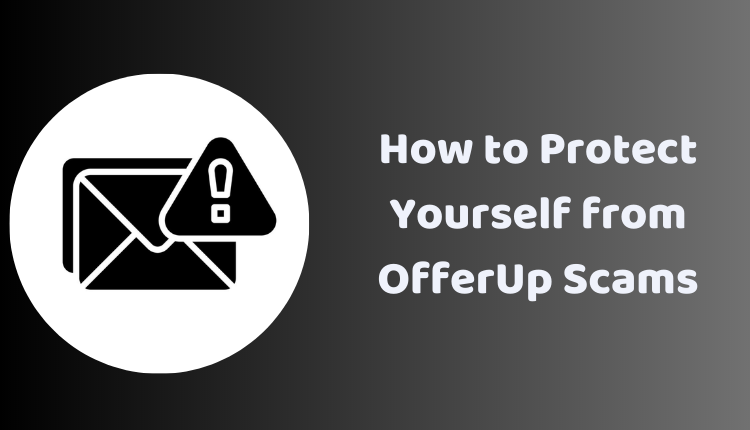How to Protect Yourself from OfferUp Scams in 2023
In our digital age, online marketplaces have become a thriving ecosystem for buying and selling goods. Among these platforms, OfferUp stands out as a popular destination for people interested in purchasing used items, ranging from furniture to tech gadgets. However, while online marketplaces like OfferUp have made buying and selling more convenient, they have also become a hunting ground for scammers.
To help you navigate safely, this blog post will unravel the most common OfferUp scams and provide valuable tips on how to avoid falling victim to them. We aim to empower you with the knowledge to recognize red flags and engage confidently in your online transactions. Remember, a well-informed user is the scammer’s worst enemy.
Common OfferUp Scams
1. Fake Check Scams
One of the frequent scams on OfferUp involves counterfeit checks. The buyer sends you a check for an amount exceeding the agreed-upon price, requesting you to refund the difference. Unfortunately, the check bounces, leaving you without the sold item and the money you returned.
How to Spot a Fake Check Scam:
- The buyer requests the refund via unprotected methods like wire transfer or PayPal Friends & Family.
- The buyer’s details don’t match the information on the check.
- The check is from an unfamiliar bank.
- The check has grammatical errors or typos.
2. Overpayment Scams
Another common scam on OfferUp is the overpayment scam. Here, the scammer sends more money than agreed upon for an item. Once you send back the excess, they file a chargeback with their bank, leaving you without the item and the refunded money.
How to Spot an Overpayment Scam:
- The buyer sends extra money.
- The refund request is via unprotected methods.
- The buyer’s details do not match their check details.
- The buyer is located abroad.
3. Shipping Scams
In shipping scams, the scammer provides a fraudulent tracking number after purchasing an item. They claim the item never arrived and file a dispute with OfferUp. OfferUp then sides with the ‘unfortunate’ buyer, and you end up losing your item and the payment.
How to Spot a Shipping Scam:
- The buyer requests shipping before payment.
- The provided tracking number is invalid.
- Despite proof of delivery, the buyer insists they didn’t receive the item.
4. Counterfeit Money Scams
In this scam, the buyer pays with counterfeit money. Only when you try to deposit the money does the bank notify you that it’s fake, and by then, your item is long gone.
How to Spot a Counterfeit Money Scam:
- The money’s texture or appearance seems off.
- The serial numbers on the bills aren’t sequential.
- The paper doesn’t feel like real money.
How to Avoid OfferUp Scams
Now that we have identified the common scams on OfferUp, it’s crucial to know how to evade them:
- Use OfferUp for Communication: Always communicate through the OfferUp app or website with buyers and sellers. Avoid using personal emails or text messages.
- Never Send Money Outside OfferUp: If a buyer asks you to refund them via wire transfer, PayPal Friends & Family, or similar methods, consider it a red flag.
- Check Ratings: Always review the buyer’s or seller’s ratings before initiating a transaction.
- Meet in Person: If possible, meeting the buyer or seller in person is the safest way to finalize transactions.
If You Get Scammed on OfferUp
In case you fall victim to a scam, report the incident to OfferUp immediately. You can also file a police report.
Additional Tips
To stay safe on OfferUp, remember:
- Use strong passwords and update them regularly.
- Be mindful about the personal information you share. Avoid sharing full name, address, or phone number unless necessary.
- Always look for signs of scams; if a deal seems too good to be true, it probably is.
- Trust your instincts. If a transaction makes you uncomfortable, refrain from proceeding.
Armed with these insights, you can now confidently engage in OfferUp transactions. Stay vigilant, and don’t let scammers ruin your online marketplace experience.

